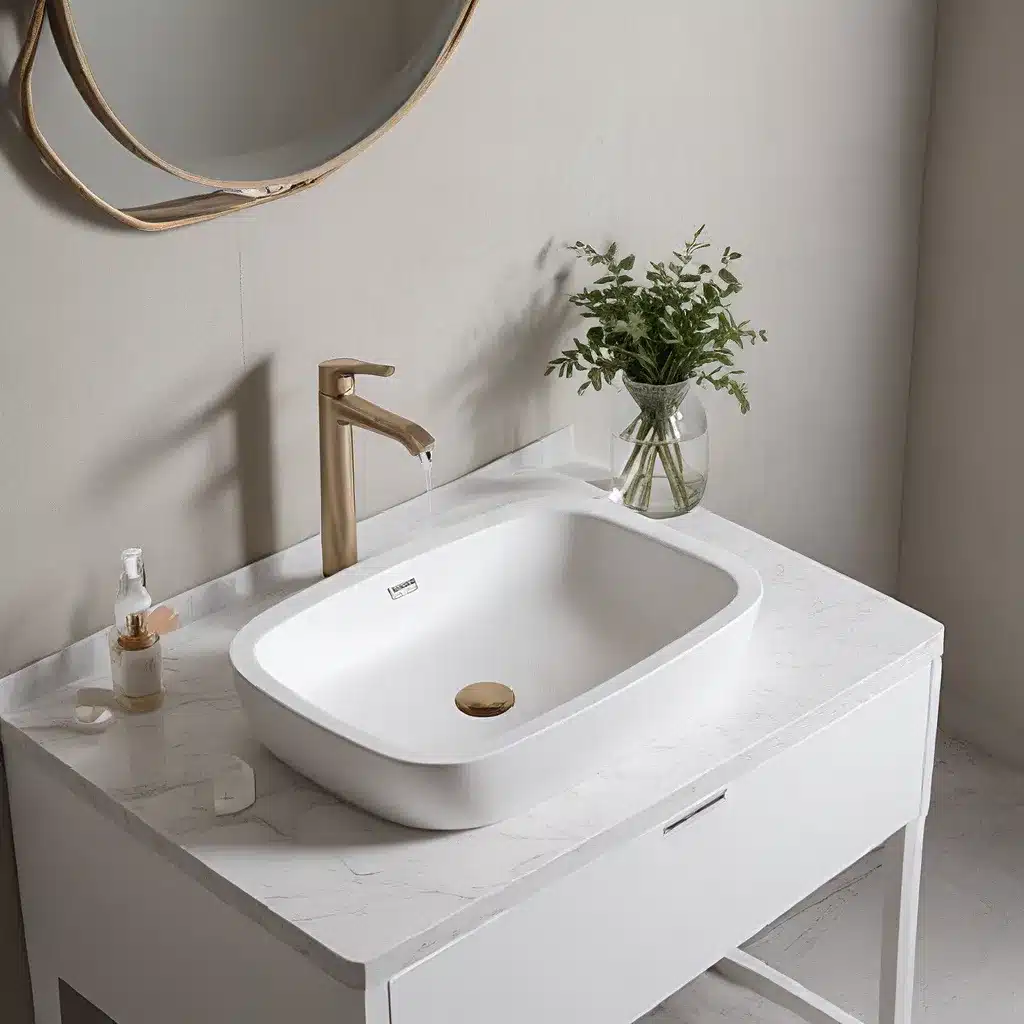
Embracing Eco-Friendly Bathroom Design
In the ever-evolving world of bathroom design, sustainable materials are emerging as a top priority for homeowners, interior designers, and contractors alike. Gone are the days when porcelain reigned supreme as the sole option for washbasins and sinks. Today, the market offers a diverse array of innovative materials that not only cater to aesthetic preferences but also prioritize environmental consciousness and long-term durability.
Washbasin Factory understands the importance of providing eco-friendly options that meet the demands of modern bathroom design. By exploring beyond the conventional porcelain, we uncover a world of sustainable materials that promise both style and substance.
Sustainable Materials for Bathroom Sinks
As the industry continues to evolve, a range of eco-friendly materials have emerged as viable alternatives to traditional porcelain. These materials not only reduce the environmental impact but also offer unique design possibilities and enhanced performance characteristics.
Natural Stone: A Timeless Elegance
Natural stone, such as granite, marble, and soapstone, has long been a popular choice for bathroom sinks due to its timeless elegance and exceptional durability. These materials are quarried from the earth, making them inherently sustainable and renewable. Moreover, the unique veining and patterns in each stone slab create a one-of-a-kind visual appeal, ensuring that no two sinks are exactly alike.
Natural stone sinks offer exceptional resistance to scratches, stains, and heat, making them a practical and long-lasting option for high-traffic bathroom environments. Additionally, these materials can be recycled at the end of their lifespan, further contributing to their eco-friendly credentials.
Solid Surface: Versatility and Customization
Solid surface materials, such as those offered by Kohler, have gained increasing popularity in recent years. These engineered composites, typically made from a blend of acrylic, polyester, or natural minerals, provide a seamless and versatile solution for bathroom sinks.
One of the key advantages of solid surface materials is their customizability. Homeowners and designers can collaborate with manufacturers to create unique sink shapes, sizes, and integrated features, allowing for truly personalized bathroom designs. Additionally, solid surface sinks are easy to clean and maintain, with a non-porous surface that resists stains and bacterial growth.
Quartzite: The Next Generation of Natural Stone
Quartzite, a natural stone formed from the metamorphosis of sandstone, has emerged as a sustainable and durable alternative to traditional marble and granite. This material boasts exceptional hardness, scratch resistance, and thermal stability, making it an ideal choice for high-traffic bathroom environments.
Quartzite sinks from Atlas Concorde offer a unique and contemporary aesthetic, with a range of color variations and patterns that mimic the natural beauty of marble. Moreover, quartzite is a highly eco-friendly material, as it is abundant in nature and can be easily recycled at the end of its lifespan.
Ceramic and Porcelain: Timeless Elegance with a Sustainable Twist
While porcelain has long been a staple in bathroom design, the industry has seen the introduction of sustainably-produced ceramic and porcelain options. These materials, often crafted using renewable, recycled, or locally-sourced raw materials, provide the traditional elegance of porcelain with a heightened focus on environmental responsibility.
Ceramic and porcelain sinks from Inalco feature advanced manufacturing techniques, such as invisible induction technology, that minimize energy consumption and waste during production. Additionally, these materials are highly durable and easy to maintain, ensuring long-lasting performance in the bathroom.
Designing with Sustainable Materials
When it comes to incorporating sustainable materials into bathroom design, homeowners and designers have a wealth of options to explore. Careful consideration of factors such as aesthetics, functionality, and environmental impact can help guide the selection process and ensure a bathroom that is both beautiful and eco-friendly.
Blending Materials for Visual Interest
One popular trend in bathroom design is the strategic blending of sustainable materials to create visually striking and harmonious spaces. For example, a natural stone vanity top paired with a solid surface undermount sink can offer a captivating contrast of textures and patterns, while still maintaining a cohesive and sustainable design.
Similarly, the use of quartzite countertops alongside ceramic or porcelain wall tiles can result in a stunning and environmentally-conscious bathroom that reflects the homeowner’s personal style.
Customizing Sustainable Bathroom Sinks
The rise of customizable bathroom sinks has empowered homeowners and designers to create truly unique and personalized washbasin solutions. By working with manufacturers, such as those offered through Washbasin Factory, individuals can specify the size, shape, and integrated features of their sustainable sink, ensuring a perfect fit for their bathroom layout and aesthetic preferences.
This level of customization allows for the integration of innovative technologies, such as touchless faucets and invisible induction heating, further enhancing the sustainability and functionality of the bathroom design.
Maintenance and Longevity
When selecting sustainable materials for bathroom sinks, it’s important to consider the long-term maintenance and durability of the chosen products. Natural stone, for instance, may require periodic sealing to maintain its water-resistant properties, while solid surface and ceramic/porcelain materials often require little more than routine cleaning to keep them looking their best.
By prioritizing low-maintenance and long-lasting sustainable options, homeowners and designers can ensure that their bathroom investments continue to provide value and contribute to an eco-friendly lifestyle for years to come.
Embracing the Future of Bathroom Design
As the demand for sustainable and eco-friendly solutions continues to grow, the bathroom industry has responded with a diverse array of innovative materials and design approaches. From natural stone and solid surface to quartzite and sustainable ceramic/porcelain, the options for creating beautiful, functional, and environmentally-conscious washbasins have never been more abundant.
By embracing these sustainable materials and integrating them into thoughtful bathroom design, homeowners and professionals can not only enhance the aesthetic appeal of their spaces but also make a meaningful contribution to a greener future. At Washbasin Factory, we are committed to empowering our customers with the knowledge and resources they need to make informed, sustainable choices for their bathroom projects.

